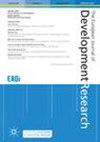从社会语言学的角度看俚语使用对印尼语的影响
IF 2.6
3区 社会学
Q2 DEVELOPMENT STUDIES
引用次数: 0
摘要
由于出现了新的语言词汇或通常被称为俚语的东西,好的和正确的印尼语的使用减少了。俚语是一种流行的非正式语言,但它的适应性给当前的自然语言处理系统带来了困难。本研究旨在描述泗水大学生俚语的使用情况及其对印尼语使用的影响。数据收集采用问卷调查的方式进行。分析结果显示,泗水的大学生经常使用俚语。在学生中使用俚语的积极影响是,它使他们在使用更容易记忆和发音的语言时更具创造性。这种负面影响降低了印尼语形式主义的质量。正确的印尼语只在演讲、写文章、论文和其他科学著作时使用。本文章由计算机程序翻译,如有差异,请以英文原文为准。
The Impact of Slang Usage on Indonesian from a Sociolinguistic Perspective
The use of good and correct Indonesian is reduced due to the emergence of the use of new language vocabulary or what is commonly called slang. Slang is a popular type of informal language, but its adaptability poses difficulties for current natural language processing systems. This study aims to describe the use of Slang by university students in Surabaya and its impact on the use of Indonesian. Data collection used a survey to respondents. The results of the analysis show that Slang is often used by university students in Surabaya. The positive impact of the use of Slang among students is that it makes them more creative in using language that is easier to remember and pronounce. The negative impact decreases the quality of Indonesian language formalism. The use of correct Indonesian is only used in lectures as well as writing articles, papers, and other scientific works.
求助全文
通过发布文献求助,成功后即可免费获取论文全文。
去求助
来源期刊

European Journal of Development Research
DEVELOPMENT STUDIES-
CiteScore
5.70
自引率
4.00%
发文量
77
期刊介绍:
The European Journal of Development Research (EJDR) redefines and modernises what international development is, recognising the many schools of thought on what human development constitutes. It encourages debate between competing approaches to understanding global development and international social development. The journal is multidisciplinary and welcomes papers that are rooted in any mixture of fields including (but not limited to): development studies, international studies, social policy, sociology, politics, economics, anthropology, education, sustainability, business and management. EJDR explicitly links with development studies, being hosted by European Association of Development Institutes (EADI) and its various initiatives.
As a double-blind peer-reviewed academic journal, we particularly welcome submissions that improve our conceptual understanding of international development processes, or submissions that propose policy and developmental tools by analysing empirical evidence, whether qualitative, quantitative, mixed methods or anecdotal (data use in the journal ranges broadly from narratives and transcripts, through ethnographic and mixed data, to quantitative and survey data). The research methods used in the journal''s articles make explicit the importance of empirical data and the critical interpretation of findings. Authors can use a mixture of theory and data analysis to expand the possibilities for global development.
Submissions must be well-grounded in theory and must also indicate how their findings are relevant to development practitioners in the field and/or policy makers. The journal encourages papers which embody the highest quality standards, and which use an innovative approach. We urge authors who contemplate submitting their work to the EJDR to respond to research already published in this journal, as well as complementary journals and books. We take special efforts to include global voices, and notably voices from the global South. Queries about potential submissions to EJDR can be directed to the Editors.
EJDR understands development to be an ongoing process that affects all communities, societies, states and regions: We therefore do not have a geographical bias, but wherever possible prospective authors should seek to highlight how their study has relevance to researchers and practitioners studying development in different environments. Although many of the papers we publish examine the challenges for developing countries, we recognize that there are important lessons to be derived from the experiences of regions in the developed world.
The EJDR is print-published 6 times a year, in a mix of regular and special theme issues; accepted papers are published on an ongoing basis online. We accept submissions in English and French.
 求助内容:
求助内容: 应助结果提醒方式:
应助结果提醒方式:


